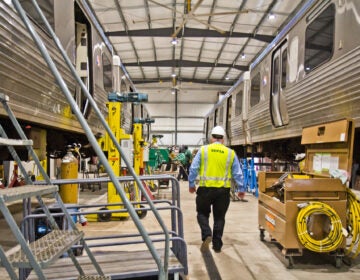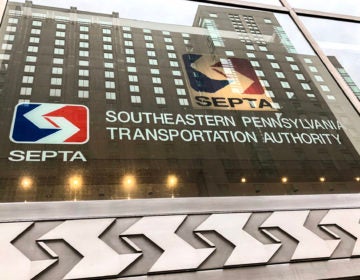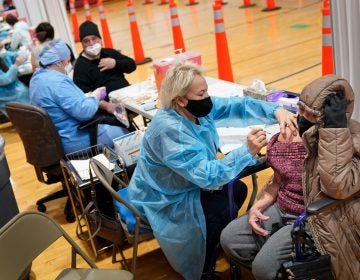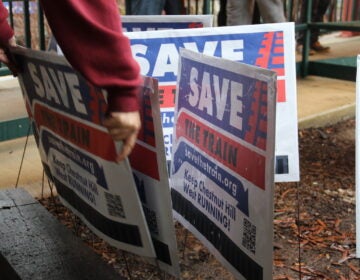SEPTA’s rampant overtime spending
Experts say the millions SEPTA spends on overtime is troubling. Meanwhile, the agency says it can't afford things like additional death benefits for workers who died of COVID.
Listen 16:47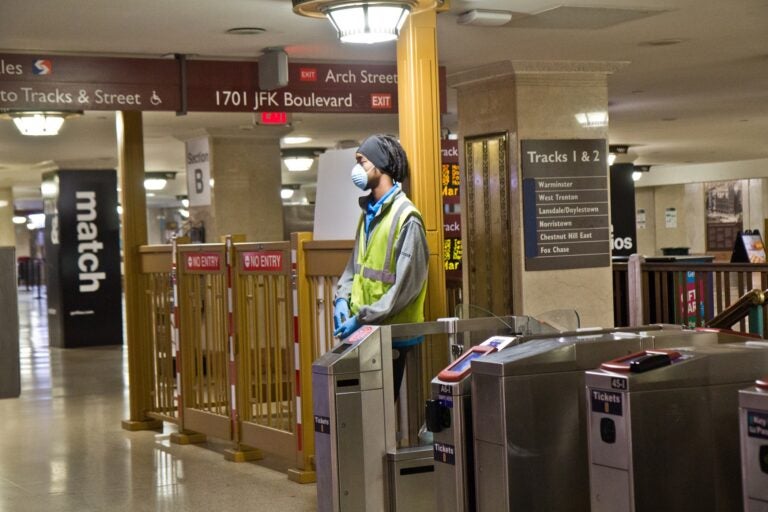
Regional rail stations were nearly empty in the wake of the coronavirus shutdown. (Kimberly Paynter/WHYY
The pandemic has thrown SEPTA into a budget crisis. Ridership and revenue are both way down and the agency is considering service cuts. But that didn’t stop them from spending what experts say is an unusually large amount of money on overtime. One SEPTA police officer doubled his salary and made almost as much as the mayor of Philadelphia.
Reporters Ryan Briggs with WHYY’s PlanPhilly and Michaela Winberg with WHYY’s Billy Penn uncovered this troubling pattern, which stands in stark relief next to SEPTA’s recent statement it can’t afford to pay additional death benefits to families of workers who died of COVID-19.

Hear the whole story on The Why
Interview highlights
On the amount of overtime some SEPTA managers are taking home
RYAN: A bit less than 400 employees earned more than 50% of their base salaries and overtime. And there are a few dozen who earned more than their annual salary each year in overtime. So, for example, SEPTA police officer Lt. Michael Wright earned more overtime than anyone else on SEPTA staff. And he earned $116,000 in overtime, which is more than his annual salary. And at the end of the fiscal year, he had earned $212,000 altogether. So that means that this was a SEPTA police officer who was making more than the chief of SEPTA Police, Thomas Nestel and just a little bit less than the mayor, Jim Kenney.
MICHAELA: I spoke to a few municipal finance experts and they were saying generally, if someone is making more than like 20% of their salary in overtime, that probably indicates some kind of systemic problem. I talked to Robert Strauss about this. He’s an economics professor at Carnegie Mellon and he said he was literally dumbfounded over the amount of overtime that SEPTA was spending, alluding to the fact that he probably thought they were claiming that fraudulently.
On what the families of workers who died of COVID-19 asked of SEPTA
MICHAELA: The union claimed that SEPTA was, in fact, partially responsible for [the death of SEPTA mechanic Ted Nixon], since he likely contracted the virus at work. SEPTA, at the beginning of the pandemic, like most agencies, was scrambling to get enough PPE for all its workers, enough hand sanitizer. So to fill in the gaps, the Transit Workers Union, Local 234 (that’s the chapter of the union that includes most drivers, other blue collar workers), they spent like $8,000 on hand sanitizer in April, another $11,000 on masks in May. And they argued that that’s evidence that SEPTA didn’t provide enough to protect its workers and should pay more to the families who who lost loved ones. So the unions specifically asked for a $500,000 death benefit for [Ted’s family] and all of the families who lost a SEPTA employee. That’s a payout that New York’s MTA provided over the summer to all the families of employees who had died working for that transit agency. [But SEPTA said] that they couldn’t really afford to pay a death benefit to each of the families who lost someone.
On the connection between SEPTA’s overtime spending and decision on death benefits
MICHAELA: You can’t say that because SEPTA paid out this overtime, they couldn’t pay out these financial death benefits. That being said … last year, SEPTA faced a federal investigation into alleged fraudulent spending involving roughly a dozen managers who were working with an outside vendor to embezzle money using SEPTA’s credit cards. And now we’re seeing this sketchy [overtime] system where they’re paying out excessive amounts to a handful of employees. And it draws into question the management financially of this entire agency. And if the financial management is questionable, who knows what they could pay out for people if they did a better job?
RYAN: I think that when you you look at these stories, you look at SEPTA saying, “We just don’t have the money to pay out death benefits.” You look where SEPTA is headed because of COVID-19 into an area where they’re saying we might have to make critical service cuts and potentially layoffs. And I think there are workers at SEPTA [who] wonder am I getting screwed over so that a manager can can get rich off of the system that doesn’t really work in the favor of the average employee? And I think that’s a legitimate question for a lot of people to ask, especially looking at overtime spending that on its face just seems kind of absurd.
WHYY is your source for fact-based, in-depth journalism and information. As a nonprofit organization, we rely on financial support from readers like you. Please give today.



